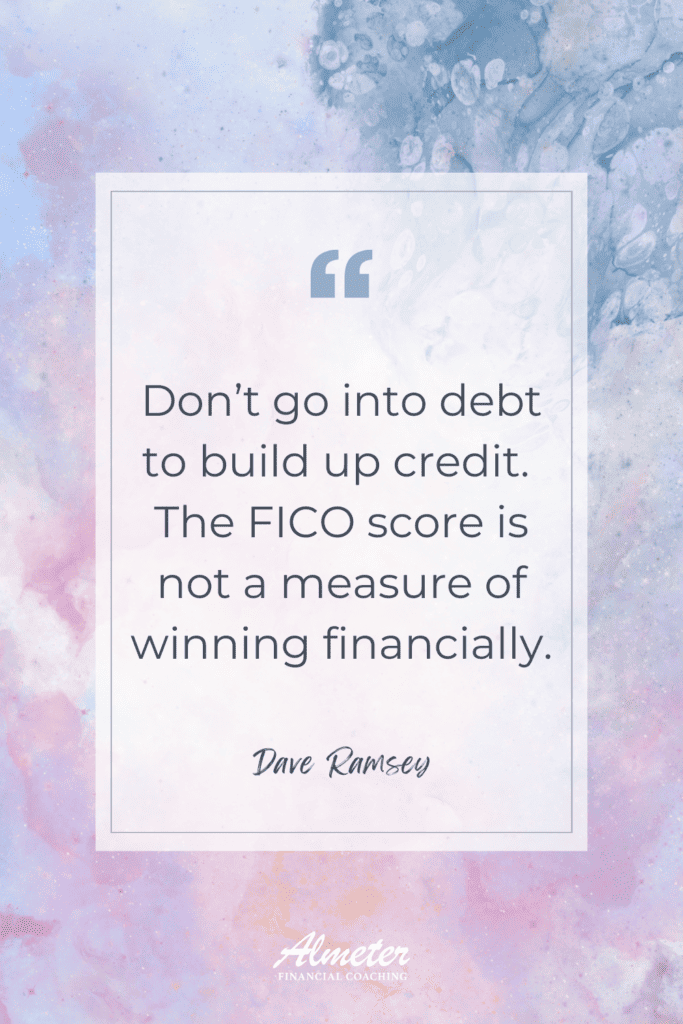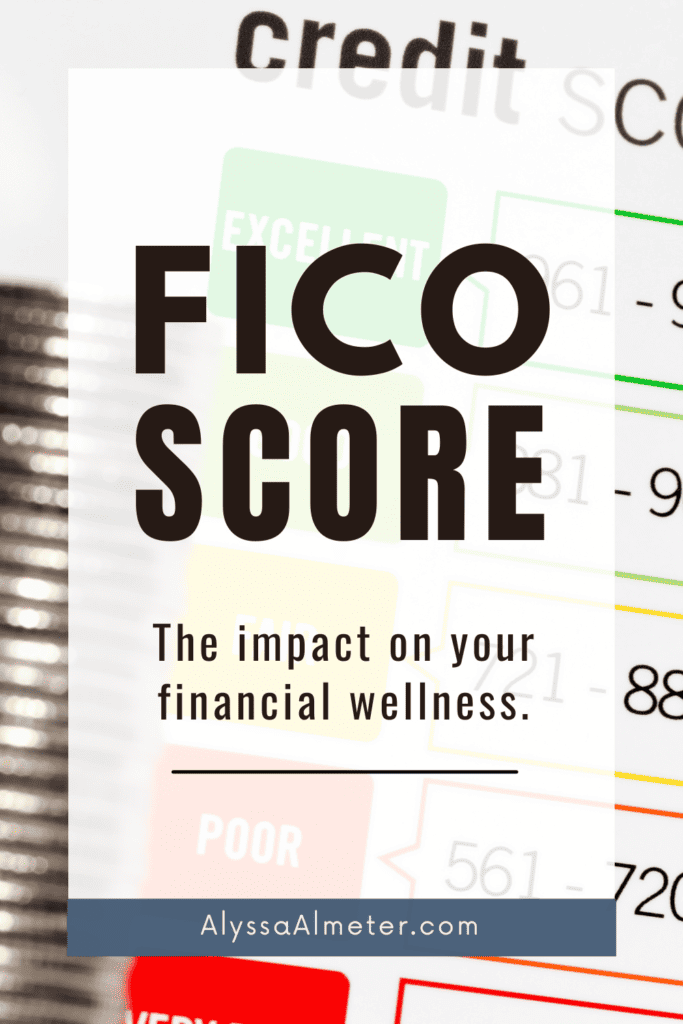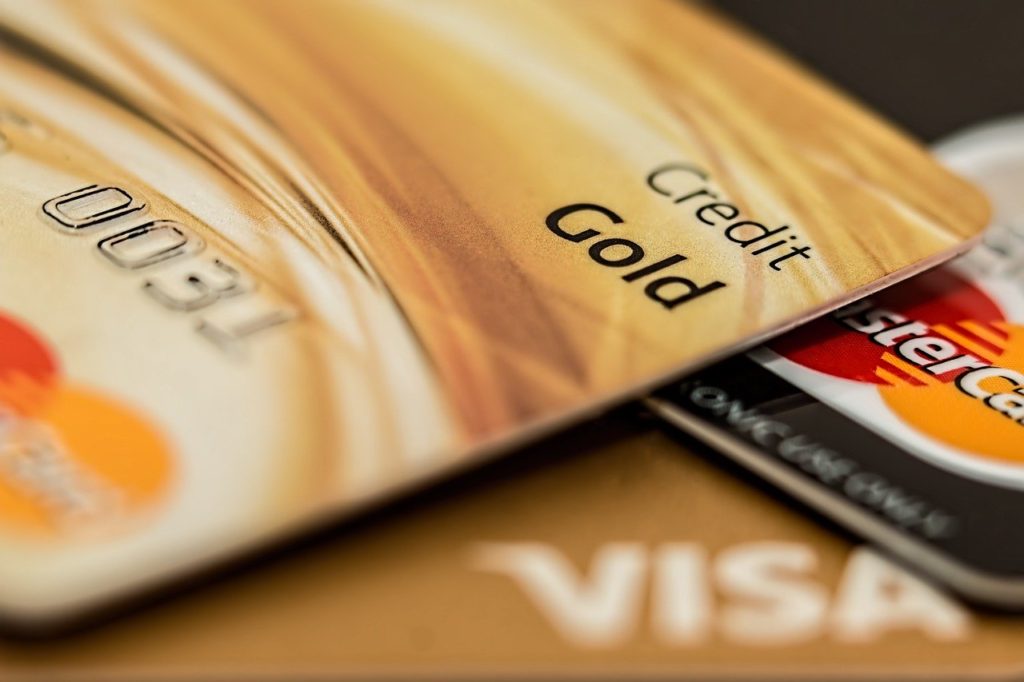This post may contain affiliate links. As an Amazon Associate I may earn from qualifying purchases at no additional costs to you. Please see the Policies pages for more info. Updated 2/29/24
A New Perspective on Having a High FICO Score
“You need to build up your FICO score,” they said.
You have probably heard this phrase before you were even old enough to have your first credit card. You were taught that you needed to have a high FICO score so that you can buy a car or house in the future.
I believed this too when I was 18. Excite to get my first credit card so I could feel like an adult by building up my credit score. Throughout my young adult life I was really proud of my “excellent: score that was in the high 700’s.
But that changed when I learned what a FICO score REALLY meant!
In this post I will explain what a FICO score is, how it’s calculated and why it’s not an indicator of a healthy financial life.
What is a FICO Score?
The FICO score (also commonly known as a credit score) is one type of calculation creditors use to determine the likelihood that you will pay back money that you borrow. The FICO score was developed in 1956 by the Fair Isaac Corporation but didn’t become popular until 1989.
Creditors want you to believe that the better your FICO score is, the better you are with your money. But is that really true?
Not really.
I like how Dave Ramsey calls it the “I love debt score.”

If you think about it that’s true. It only focuses on how well you handle your debts; how much debt you have and how you pay them back. It does not take into account any assets (equity of your home,, money in bank, retirement accounts, investment funds, etc.).
There are 3 different credit bureaus that run credit scores; TransUnion, Equifax and Experian. They all have their own credit score calculations so when you are looking up your number they won’t necessarily be exactly the same, but should be within points of each other.
Here are the categories they take into account when determining your credit score:
35% Payment History
30% Amounts Owed
15% Length of Credit History
10% Credit Mix
10% New Credit
Credit Score vs. Credit Report
Your credit score the the numerical rating of your debt as explained above.
Your credit report will list all your current and past debts, including credit cards, mortgages, car loans, personal loans, student loans, HELOC, and overdue medical bills reported to the credit bureaus.
If you have any kind of debts you will have a credit report and a credit score.
I suggest reviewing your credit report at least annually to make sure it is correct and no fraudulent loans have been taken out in your name. You can get a free report at AnnualCreditReport.com.
What are the FICO Score Rankings?
The FICO score is broken down into 5 rankings from “very poor” to “excellent”. When creditors are reviewing your score they are determining the risk factor of lending you money. To them the higher the score the better because they think you will more likely pay them back.
On the flip side, the lower the score (to them) means you are a higher risk; meaning they think you are less likely to pay them back.
Excellent 800-850
Very Good 740-799
Good 670 – 739
Fair 580-669
Very Poor 300-579
Creditors use these numbers to decide if you are eligible for a loan and what your interest rate will be. Typically the higher your score the better (lower) interest rate you will have. If you have a low score then you will have a higher interest rate than those with a higher score.
What is an Indeterminable Score?
An indeterminable score simply means you do not have a credit history for a score to be calculated. It does not mean you have a low score. Once you pay off all your debts and close the accounts your score will eventually be “indeterminable” because there is simply no recent debt to calculate.
So Do You Need a FICO Score For Financial Health?
This may come as a shock to you but you don’t need a credit score! A credit score only helps you if you want to take on more debt. And who wants to do that?
But how can I buy a car or a house?
For big purchases the key is to SAVE the money before you buy.
Yes, save up cash to buy that car. It may not be your dream car but as long as it’s reliable and can get you from point A to point B that is all you need. You can always save up more money later to get a nicer car.
As for a house, it is possible to get a mortgage without a credit score. The process is called manual underwriting. Not every lender will have the manual underwriting as an option so you will have to do your research. Ideally you would want 20% for a down payment and you will have to provide documents to the lender proving income and your ability to pay monthly expenses.

My Credit Score is Dropping…But I Don’t Care!
As of February 2024 my FICO score is 644, which is considered “fair”.
A “fair” score can mean 1 of 2 things:
- To the general public and creditors it probably means I have a lot of debts and I don’t make my payments on time. I am not a “safe bet” to creditors and if I were to take out a loan my interest rate will be pretty high (if they even qualify me.)
- My debts have been paid and debt history is slowly “dropping off” their scope for calculations.
As I mentioned in the beginning I was so proud of my high credit score because I felt like I was doing the right thing when it came to money. I always paid my credit cards in full and on time. The truth was, I had over $30,000 in student loans when I graduated and a car loan on top of that.
I was losing over $500 a month in debt payments, which was robbing me of building up my savings. It was a vicious cycle of debt payments.
After I learned that being financially successful CAN be done without debt I decided to stop using my credit card and only use my debit card. Eventually the student loans, car loan and credit cards were no longer part of the “debt history” when calculating my FICO score.
Within the last year my score went from high 700’s (close to 800 probably, I can’t remember) to 644. I am slowly working on that classification of indeterminable debt.
(For clarification we do have a mortgage but it is in my husband’s name and it’s our goal to pay that off as quickly as we can)
Credit Score and Your Financial Health
If you truly want to live a debt free life and have financial peace it may feel weird at first to not focus on your credit score. Instead focus on what really matters when it comes to financial wellness – increasing your assets and lowering your debts.
If you need some help on the areas you should focus on for your financial health then download my free Financial Wellness Checklist. I promise that prioritizing the items on your Financial Wellness Checklist will be more exciting that watching you FICO grow.
Related Articles
Dave Ramsey’s 7 Baby Steps to Financial Peace
How to Use the Debt Snowball to Pay Off Debt Faster


